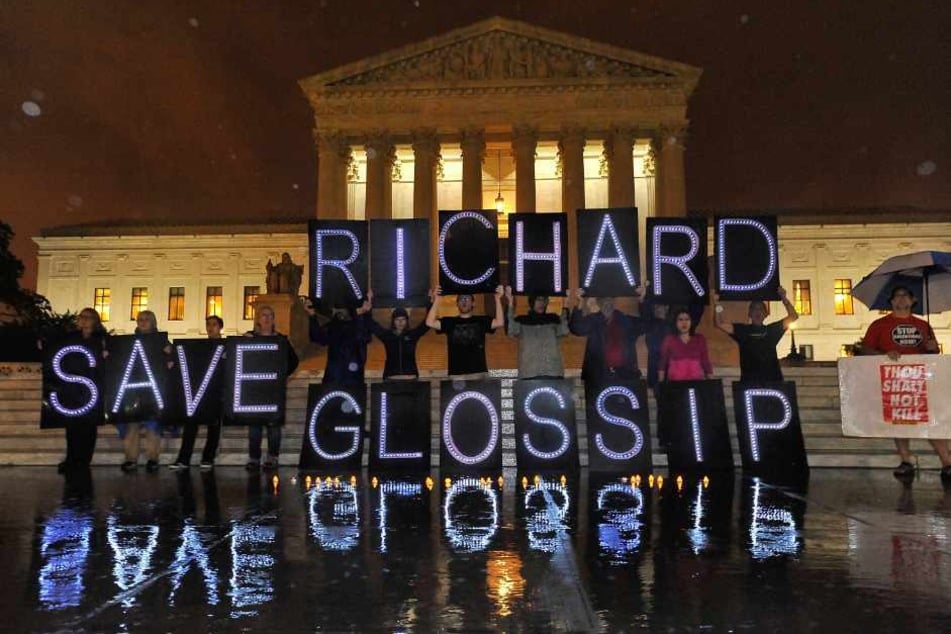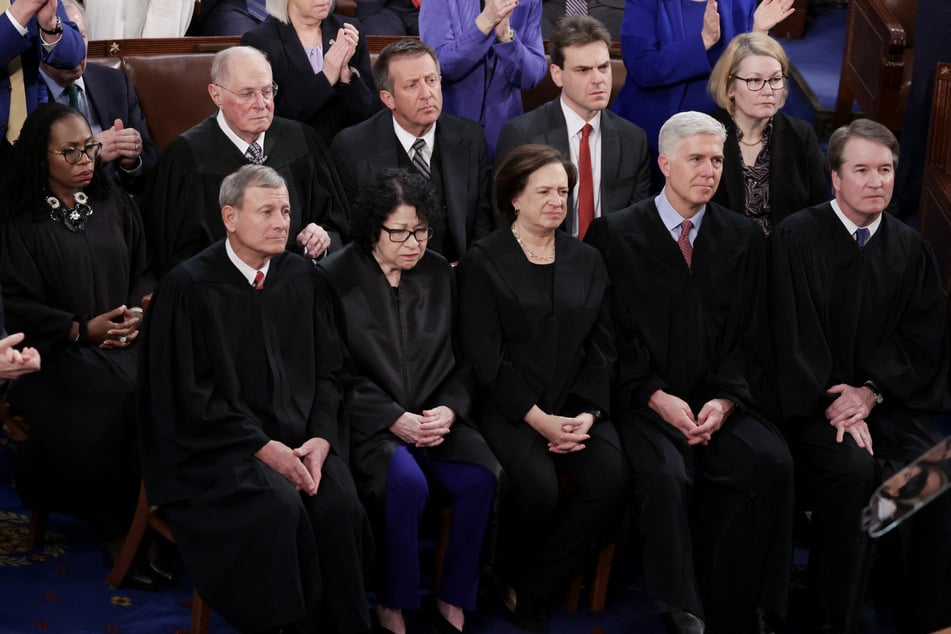Richard Glossip: Supreme Court appears split on high-profile death row appeal
Washington DC - The US Supreme Court appeared split on Wednesday about potentially granting a new trial in the high-profile case of an Oklahoma man sentenced to death for a murder he insists he did not commit.

Richard Glossip (61) was convicted – twice – of the 1997 murder-for-hire of Barry Van Treese, an Oklahoma City motel owner, and sentenced to death in a case that has drawn appeals for clemency from Pope Francis and Hollywood stars.
Execution dates for Glossip have been scheduled nine times, and he has eaten three "last meals" as the case drags on.
Glossip's first conviction in 1998 was overturned because of ineffective counsel, but he was tried once more in 2004 and again found guilty.
His case wound up in the Supreme Court after the Republican attorney general of Oklahoma, in an unusual intervention, sought a new trial for Glossip, citing "grave misconduct" by prosecutors who withheld evidence and a star witness who lied on the stand about being prescribed lithium by a prison psychiatrist for bipolar disorder.
Glossip was convicted almost solely on the basis of testimony from Justin Sneed, the then-19-year-old motel maintenance man who confessed to bludgeoning Van Treese to death with a baseball bat in a plot he claimed was masterminded by Glossip, the motel manager.
The Oklahoma Court of Criminal Appeals rebuffed state Attorney General Gentner Drummond's appeal to vacate Glossip's conviction and the Supreme Court agreed to hear the case.
Supreme Court bicker during oral arguments for Richard Glossip's high profile murder appeal

During oral arguments on Wednesday, a slim majority of the justices appeared inclined to grant Glossip's request for a new trial, although some appeared to have reservations about whether they had the jurisdiction to intercede.
"Your one witness has been exposed as a liar," Justice Elena Kagan told Christopher Michel, the attorney defending the ruling of the Oklahoma state court not to toss out Glossip's conviction.
"The critical question that a jury is asking is, 'Do I believe this guy in everything he says, and particularly, do I believe him when he points the finger at the accused?'" Kagan said.
Michel dismissed Sneed's lie about being prescribed lithium as unimportant in that "the jury already had significant credibility questions" about him.
"The witness admitted that he beat a man to death with a baseball bat. The witness admitted that he was testifying in exchange for avoiding the death penalty," he said.
Justice Brett Kavanaugh appeared unconvinced. "I'm having some trouble on that last piece of the argument," he said, "when the whole case depended on his credibility."
Justice Sonia Sotomayor expressed concern about misconduct by prosecutors who she said were accused of withholding a "ton" of information from Glossip's defense attorneys.
Justice Ketanji Brown Jackson suggested that, given the "pretty significant factual questions" in the case, it should be sent back to state court for further evidentiary hearings, a move that is not supported by either side.
Will the Supreme Court save Richard Glossip?
The votes of at least five justices will be needed to grant Glossip a new trial. One justice, Neil Gorsuch, recused himself because he was involved in the Glossip case before joining the Supreme Court.
Glossip was last scheduled to be put to death by lethal injection on May 18, 2023, but the Supreme Court stayed his execution.
There have been three executions in Oklahoma this year and a total of 19 in the US.
Cover photo: Larry French / GETTY IMAGES NORTH AMERICA / Getty Images via AFP

